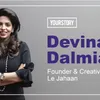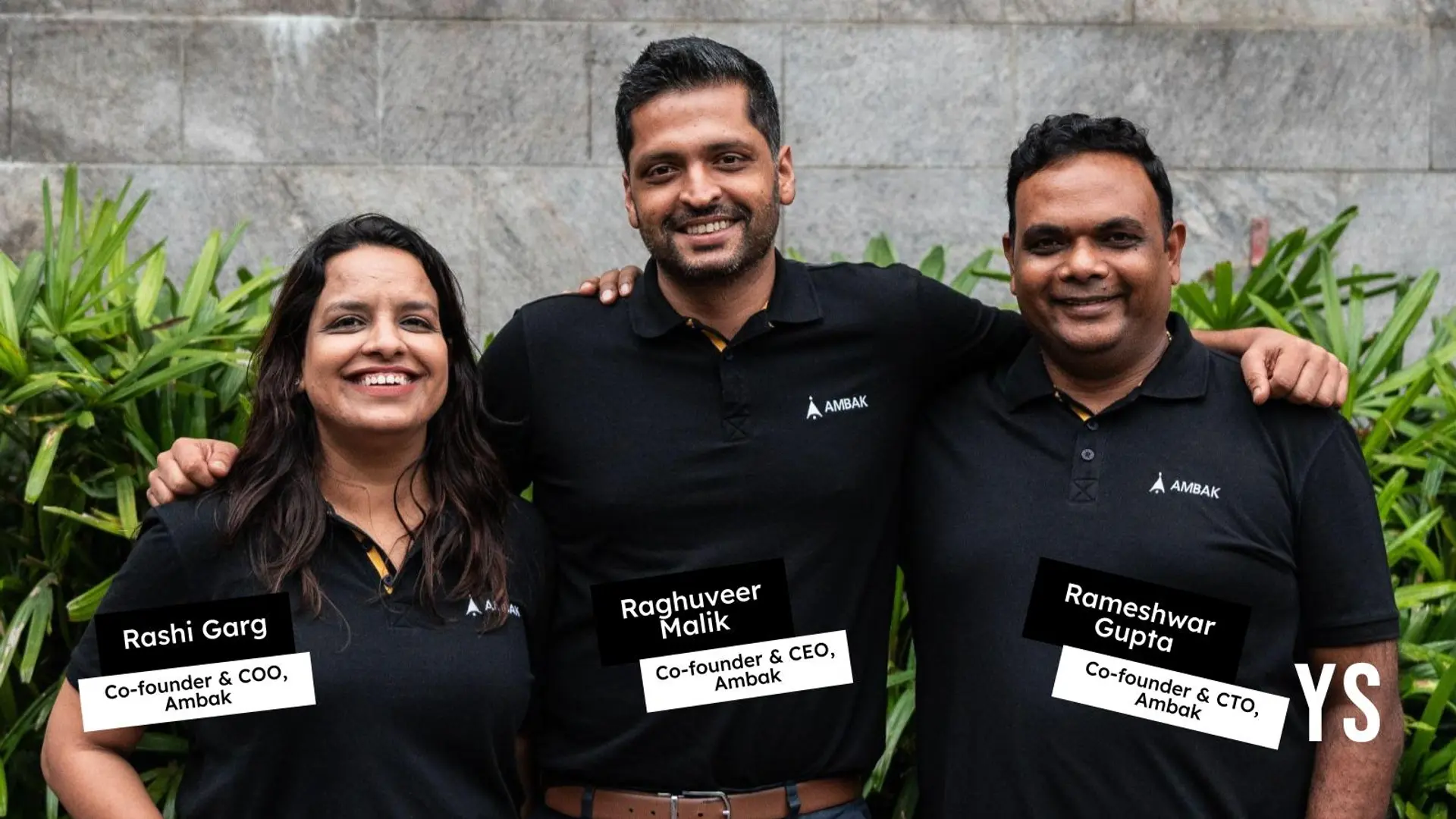TiE Global winner’s startup aims to produce sustainable packing material from seaweed
When Neha Jain was searching for sustainable alternatives for packaging, she looked to the ocean for inspiration. Her startup, Zerocircle Alternatives, uses seaweed to help companies with custom solutions for their packaging requirements.
In October 2020, TiE Women, a global initiative by The Indus Entrepreneurs (TiE) dedicated to helping women across the globe reach their full potential by empowering them with the necessary support to build leadership skills and grow their business, announced the winners of the second edition of their global pitch competition.
Held at GITEX Global 2021 under GITEX Future Stars in Dubai, Neha Jain, Founder and CEO of , was announced the winner and awarded $70,000. Neha is a TIE Delhi-NCR member and was also a finalist at the TiE Delhi-NCR Regional Finale of 'TiE Women Global Pitch Competition 2021 '.

Neha Jain (centre, with trophy) at the TiE global competition
Neha’s startup, Zerocircle Alternatives, aims to leverage technology to produce sustainable packing material and help companies march towards a carbon-neutral future.
However, her journey started years back. After completing her graduation from Christ College, Bengaluru, Neha joined Google in 2006, travelled all over the country during her corporate days, and settled in Mumbai in 2009, making it her home.
“When I finished my corporate stint, I took my time to work on multiple businesses, including architecture. I discovered that issues impacting climate and pollution cannot be solved by better engineering and conscious consumer choices alone. It needed change at the top. The resources needed to be regenerative, scalable, and socially inclusive. At the same time, the solutions should be industrially compatible to deliver a large-scale impact,” Neha says.
Seaweed as a sustainable alternative
Looking at the ocean for inspiration, she found a ‘big opportunity’ no one was looking at.
“It’s the largest and the most ancient resource on the planet. Within the ocean grows seaweed. One out of two breaths we take, comes from the ocean. If the ocean breathes, we live. Instead of turning it into a dump yard, I wanted to harness the power of the ocean to make the building blocks of tomorrow and the future of materials,” she says.
Neha points out that single-use plastics, consumed in high volumes, is used for less than five minutes but unfortunately lives on for hundreds of years. Its alternatives – paper, glass, or cloth - are equally exploitative towards the planet.
She decided to make a difference in the entire value chain by using seaweed as an alternative source. She believes its cultivation provides “a more robust source of income to financially fragile fishing communities and keeps carbon footprint at a minimum”.
Zerocircle’s first prototype was built in collaboration with a global food company. Since then, it has worked with several CPG players to design custom solutions for their packaging requirements. Its solution is not limited by any geographical boundaries.
Neha elaborates, “We make ocean-safe and carbon-efficient packaging for ambitious consumer brands. Our packaging materials serve the requirements of the industry for the preservation of food, food contact safety, and non-food products.”
She says the raw material source is highly carbon negative, meaning it releases more oxygen than anything that grows on land.
“When you are done, you can throw it in the wet bin and it will decompose like a vegetable. If it enters the ocean, it will dissolve like ocean water. We ensure that the processing impact of our production is minimal. Seaweed grows in most coastal countries around the world. It's an easy plug-and-play solution since our technology will be licensable to existing manufacturers.”
Custom solutions for large brands

Neha Jain, Zerocircle Alternatives
Zerocircle works with B2B brands and the products they sell range from processed food to skincare and ecommerce services. It charges a one-time R&D fee to create custom solutions for large brands with specific requirements.
The impact is manifold – Neha recently discovered that the packaging is more than a sustainable alternative to fresh foods.
“Multiple studies have indicated that our packaging slows down the fast ripening process of fresh food and extends the shelf life by days and weeks. This application directly targets the food waste problem, which is a third of the overall food waste we produce as a society even before it is purchased by consumers. With the recent finding, we are actively inviting fresh food players to test our packaging,” she says.
Bootstrapped until recently, Zerocircle raised a pre-seed round of $300,000 from a climate-focused impact fund. This will help it run its scale-up pilot and take it closer to pre-commercial production. Test pilots were completely funded by the clients that were testing with them with no exclusivity contracts so far.
Incorporate in the middle of the pandemic, Zerocircle created its first prototype in the backyard of an old industrial plant due to restrictions of movement. Since then, it has found support from several groups besides potential clients. It was incubated by Venture Center in Pune earlier this year that provided it with ready laboratory infrastructure to further enhance its prototypes.
It is also part of several accelerator programmes like Nestle R&D accelerator, The incubation Network - SG, TiE Women, Hatch Global - Women in Aquaculture, and FLCTD (in collaboration with UNIDO).
Initially, Zerocircle operated from its lab in Pune, but Neha is in the process of setting up a new one in Andheri, Mumbai.
Participating in the TiE global competition has opened up Neha’s world to women trying to solve some of the most critical problems in the world.
“Their solutions have unbelievable innovation. But it is their determination and personality that shines through their work and makes their businesses truly stand apart. I'm so honoured to be one among them,” she says.
Neha plans to use the prize money to move into new premises that can accommodate the team members of Zerocircle.
“More importantly, it will help us buy machines to initiate our pilot scale-up. We are also investing in small testing machines to get faster results in our facility,” Neha says.
Edited by Teja Lele








